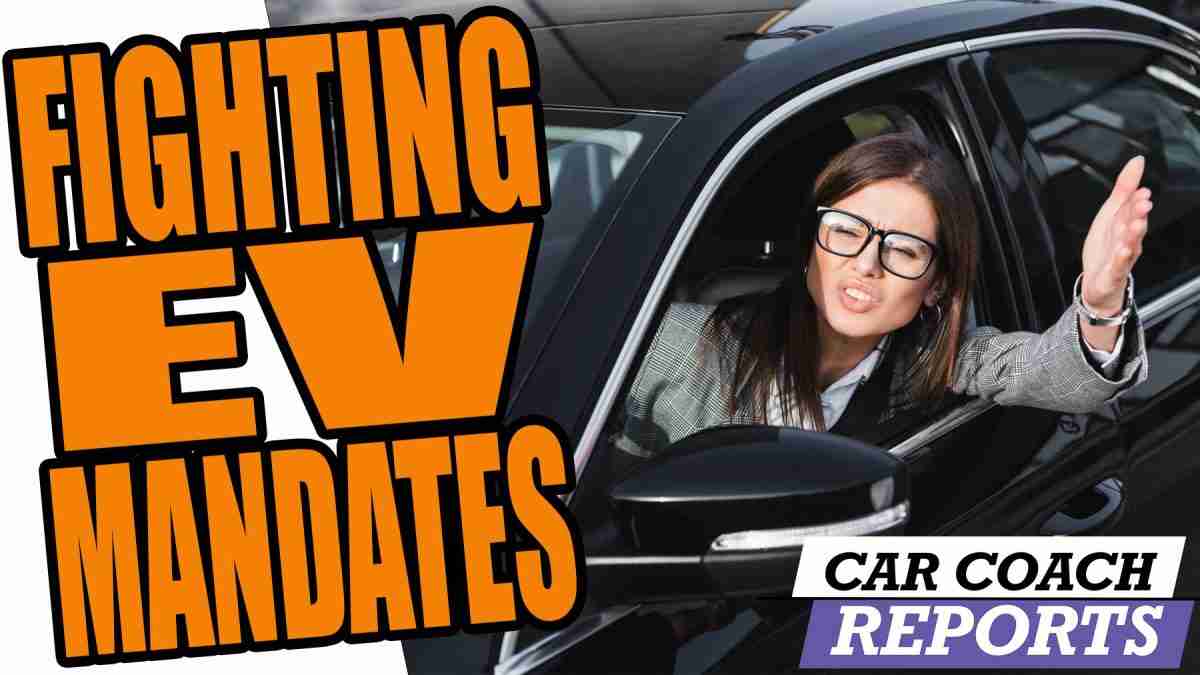Car Dealerships Push Back Against Mandatory Electric Vehicle Sales

Table of Contents
Financial Concerns and Infrastructure Limitations
The financial burden of complying with mandatory electric vehicle sales quotas is a major source of contention for dealerships. This challenge manifests in two key areas: high initial investment costs and uncertainty regarding EV demand and profit margins.
High Initial Investment Costs for Dealerships
Transitioning to a significant EV sales volume requires substantial upfront investment. Dealerships must invest in new infrastructure to support the sale and servicing of electric vehicles.
- Expensive charging equipment: Installing fast-charging stations requires a significant capital outlay, especially for larger dealerships needing multiple chargers to meet potential demand.
- Staff retraining expenses: Mechanics and sales staff need specialized training to handle EV maintenance and sales, adding to operational costs. This includes training on battery technology, electric motor repair, and safe handling procedures.
- Showroom modifications: Showrooms may require upgrades to accommodate EV displays, charging stations, and updated marketing materials. This is particularly true for older facilities.
- Lack of government support: The absence of sufficient government subsidies or grants to support infrastructure upgrades exacerbates the financial strain on dealerships, especially smaller, independent ones. Many dealerships feel that the financial burden of EV adoption is being unfairly placed solely on them.
Uncertainty Regarding EV Demand and Profit Margins
Dealerships also express significant concerns about the market viability of electric vehicles. Profitability remains a crucial factor in their decision-making process.
- Low consumer adoption rates: In many regions, consumer demand for EVs lags behind government targets. This creates uncertainty about the return on investment for the necessary infrastructure upgrades.
- Thinner profit margins on EV sales: Currently, profit margins on EV sales are often lower than those for gasoline-powered vehicles. This is due to factors such as higher manufacturing costs and intense competition.
- Unreliable government incentives: Government incentives for EV purchases are inconsistent across regions and often change unexpectedly. This instability makes long-term financial planning difficult for dealerships.
Challenges in Sales and Consumer Education
Beyond financial concerns, dealerships face challenges related to sales and consumer education surrounding electric vehicles. These hurdles are impacting their ability to meet potential mandatory sales targets.
Consumer Resistance and Misconceptions
Consumer hesitancy towards EVs remains a major obstacle. Many potential buyers still harbor misconceptions about electric vehicles.
- Range anxiety: Concerns about limited driving range on a single charge remain a significant barrier to adoption.
- Charging infrastructure concerns: The lack of widespread and reliable public charging infrastructure contributes to consumer apprehension.
- High perceived initial cost: The upfront cost of EVs, even with government incentives, remains a deterrent for many consumers.
- Lack of public awareness: A lack of effective public awareness campaigns on the benefits of EVs, such as lower running costs and environmental friendliness, further hinders sales.
Sales Training and Expertise Gap
Dealerships also grapple with the need for specialized sales and service expertise for electric vehicles.
- Lack of trained sales staff: Sales personnel require specific training to effectively address consumer concerns, explain the benefits of EVs, and guide customers through the purchasing process.
- Shortage of EV mechanics: A shortage of qualified technicians capable of servicing and repairing EVs represents a significant challenge. Specialized training and certification programs are needed to address this gap.
- Difficulty in addressing consumer concerns: Sales staff needs the knowledge and resources to effectively tackle common consumer anxieties about range, charging, and maintenance.
Government Policy and Regulatory Hurdles
Government policies surrounding mandatory electric vehicle sales are also contributing to dealership resistance. The lack of clear, consistent, and supportive regulations adds to the difficulties.
Inconsistency and Rapidly Changing Regulations
The ever-changing regulatory landscape creates uncertainty and makes long-term planning extremely challenging for dealerships.
- Varying state mandates: Inconsistent regulations across different states complicate nationwide strategies for EV adoption.
- Unclear future regulations: The lack of clarity regarding future regulations creates uncertainty about long-term investment decisions.
- Difficulty in predicting EV market trends: Rapidly changing technology and market dynamics make it difficult for dealerships to accurately forecast future demand.
Lack of Support and Collaboration
Dealerships emphasize the need for greater government support and collaboration in the transition to EVs.
- Need for government funding: Substantial financial incentives are needed to help dealerships upgrade their infrastructure and train their staff.
- Infrastructure investments: Government investment in public charging infrastructure is essential to alleviate consumer concerns and encourage EV adoption.
- Consistent regulations: Clear, consistent, and predictable regulations are crucial for effective long-term planning.
- Manufacturer partnerships: Stronger collaboration between dealerships and manufacturers is necessary to streamline the transition process and ensure sufficient supply of EVs.
Conclusion
The pushback against mandatory electric vehicle sales by car dealerships highlights the significant challenges in this transition. Financial concerns, infrastructure limitations, consumer education gaps, and regulatory hurdles all contribute to the resistance. To successfully accelerate EV adoption, governments and manufacturers need to address these concerns through increased financial incentives, improved infrastructure, effective consumer education campaigns, and clear, consistent regulatory frameworks. A collaborative approach is essential to ensure a smooth transition and avoid disrupting the automotive industry while promoting sustainable transportation. Understanding the challenges faced by dealerships is crucial to effectively implementing policies for successful mandatory electric vehicle sales. Addressing these issues is vital to the success of any policy mandating electric vehicle sales.

Featured Posts
-
 Today Show Cohosts Comment On Anchors Prolonged Absence
May 23, 2025
Today Show Cohosts Comment On Anchors Prolonged Absence
May 23, 2025 -
 Weekend Events Fashion Heritage Ballet And Puns Await
May 23, 2025
Weekend Events Fashion Heritage Ballet And Puns Await
May 23, 2025 -
 Dylan Dreyers Today Show Transformation A Powerful Impression
May 23, 2025
Dylan Dreyers Today Show Transformation A Powerful Impression
May 23, 2025 -
 Essen Der Unerwartete Eis Trend In Nordrhein Westfalen
May 23, 2025
Essen Der Unerwartete Eis Trend In Nordrhein Westfalen
May 23, 2025 -
 Rybakina Leads Kazakhstan To Billie Jean King Cup Finals
May 23, 2025
Rybakina Leads Kazakhstan To Billie Jean King Cup Finals
May 23, 2025
